Peer-Reviewed Publications
Border Fortification and Legibility: Evidence from Afghanistan
Abstract: States often fortify their borders against militant threats. How do these efforts shape civilian welfare and perceptions in borderland communities? I conceptualize border fortification as a legibility-building endeavor. By bolstering state reach in areas of weak historical penetration, fortification enhances the government's capacity for monitoring, administration, and control. Yet, expanding state authority also disrupts traditional cross-border markets. A trade-off between security and corruption emerges in consequence. I provide evidence for this theory in a difference-in-differences framework, combining administrative records on violence and representative data from a NATO-commissioned survey fielded across Afghanistan. Fortification facilitates government information-collection, improving security provision and fostering civilian reliance on state forces. Enhanced state capacity is countervailed by negative economic impacts. By disturbing the informal borderland economy, fortification fuels criminalization and local opposition. Civilians rely on illicit economic entrepreneurs to sustain traditional market access. Higher smuggling rents fuel official corruption and bribe-taking. The findings point to a key dilemma inherent in border fortification strategies.
- Conditionally Accepted at the American Journal of Political Science.
- Publisher's Version PDF Appendix Replication Data
- Winner of the 2023 Peace Science Society Stuart A. Bremer Award
In the Eye of the Storm: Hurricanes, Climate Migration, and Climate Attitudes
Abstract: Climate disasters raise the salience of climate change's negative consequences, including climate-induced migration. Policy action to address climate displacement is especially contentious in the U.S., where weak support for tackling climate change intersects with high opposition to migration. Do climate disasters foster receptivity toward climate migrants and broader willingness to combat climate change? To study this question, we leverage the occurrence of Hurricane Ian during fielding of a pre-registered survey in autumn 2022. Hurricane exposure increased concern about and support for policies to address climate migration. Hurricane exposure also increased support for climate action and belief in anthropogenic climate change. Effects of hurricane exposure cross-cut partisanship, education, age, and other important correlates of climate attitudes, but decay within six months. Together, these results suggest that climate disasters may briefly increase favorability toward climate migrants and climate policy action, but are unlikely to durably mobilize support even in severely-impacted areas.
- Forthcoming at the American Political Science Review.
- Publisher's Version PDF Appendix Additional Supplement Pre-Analysis Plan Replication Data
The Fortification Dilemma: border Control and Rebel Violence (Job mARKET pAPER)
Abstract: Where cross-border sanctuaries enable rebels to marshal external support, classical theories of counterinsurgency extol the strategic value of border fortification. By sealing borders, counterinsurgents can erode transnational militants’ resources, degrading the quality of rebellion. Extending resource-centric theories of conflict, I posit a fortification dilemma inherent in this strategy. Externally supplied rebels can afford conventional attacks and civilian victimization. When border fortifications interdict their foreign logistics, insurgents compensate by cultivating greater local support. In turn, rebels prefer more irregular attacks and cooperative relations with civilians. Hence, counterinsurgent border fortification trades off reduced rebel capabilities for greater competition over local hearts and minds. I test this theory using declassified microdata on border fortification and violence in Iraq. Results highlight the central link between border control and cross-border militancy, and show how governments can contest the transnational dimensions of civil wars, such as external rebel sponsorship.
- Forthcoming at the American Journal of Political Science.
- Publisher's Version PDF Appendix Replication Data
Military Attitudes on the Chemical Weapons Taboo: Evidence from the Pacific Theater
Abstract: Little is known about military attitudes toward weapons taboos, or the durability of non-use norms in wartime. Chemical weapons are a key case given public revulsion and clear international prohibitions. We explore soldiers' attitudes in a salient setting: the Pacific theater of World War II. We draw on a declassified survey covering a representative sample of enlisted US soldiers in Hawai'i in 1944. This unique context, during a total war against an adversary that had employed chemical weapons, represents a hard test for the chemical weapons taboo. Up to 91% of soldiers supported using chemical weapons against Japan, including 24% who favored initiation and 67% who favored retaliatory use. To understand the influence of military instruction, we exploit a novel regimen still used in basic training, which saw some troops exposed to lachrymatory gas. We find exposure to chemical weapons in training reduced support for use. Visceral experiences can mobilize support for weapons taboos in otherwise permissive environments.
- Journal of Politics 86(3): 1075--1082. (with Michael C. Horowitz)
- Publisher's Version PDF Appendix Replication Data
The Gendered Peace Premium
Abstract: The adage that “only Nixon could go to China” suggests hawkish leaders face fewer domestic political barriers to pursuing conciliation with foreign adversaries. Since hawks are viewed as less ideologically predisposed to peace than doves, their efforts at rapprochement are more likely to be perceived as in the national interest. We explore how this conventional wisdom intersects with prominent gender stereotypes about women’s role in national security. Do gender stereotypes that women are inclined towards peace make it more difficult for women leaders to pursue conciliation? In a series of survey experiments, we find evidence of a gendered peace premium—a penalty women leaders face for pursuing peace. When women leaders seek rapprochement with foreign adversaries, they are perceived as acting “according to type.” Consequently, women’s conciliatory policy proposals are viewed as less likely to be in the national interest than identical policies pursued by male leaders. Partisanship dynamics significantly moderate the gendered peace premium, and policy success can attenuate women leaders’ disadvantage. While this discriminatory dynamic does not make it impossible for women leaders to seek and achieve peace, it does make it more difficult and politically costly than some perspectives assume.
- International Studies Quarterly 67(4): 1-16. (with Joshua A. Schwartz)
- Publisher's Version PDF Appendix Pre-Analysis Plan Replication Data
- Winner of the 2022 APSA Presidents & Executive Politics Founders Award
The STRATEGic Logic of large militant alliance networks
Abstract: Ideological and operational credibility are essential to the success of transnational terrorist organizations. We demonstrate that militant groups can leverage large alliance networks to bolster their ideological and operational reputations. Organizations can draw on operational capabilities and successes to build international networks that bolster their ideological credibility. Conversely, organizations with reputations for ideological authority can lend it to affiliates, who offer reach into active conflicts, bolstering claims to operational capacity. This logic of comparative advantage suggests that militant alliances can be a strategic response to underlying material or ideological deficits. We illustrate these dynamics through data-driven case studies of al-Qaeda and the Islamic State’s cooperative networks.
- Journal of Global Security Studies 8(1): 1-22. (with Philip B.K. Potter)
- Publisher's Version PDF Appendix Replication Data
rESTITUTION OR rETRIBUTION: Detainee Payments and Insurgent Violence
Abstract: Counterinsurgents frequently rely on mass arrests to impede rebel operations, but in so doing, risk detaining innocent civilians. Wrongful detention can backfire, fueling insurgent violence by alienating detainees and their kin. Can counterinsurgents mitigate wrongful detention through targeted compensation? I study this question using project-level data on US payments to individuals deemed innocent and released from Coalition custody in Iraq between 2004 and 2008. Leveraging plausibly exogenous variation in the allocation of detainee release payments, I document a robust, negative association between counterinsurgent compensation for wrongful detention and insurgent violence. The violence-reducing effects of detainee release payments were greatest in mixed and Sunni areas; for the types of insurgent attacks most prone to civilian informing; and when detainee release was complemented by other population-centric reforms to detention. These results suggest that post-harm mitigation helps shift civilian perceptions, inducing civilians to share more information with counterinsurgent forces.
- Journal of Conflict Resolution 66(7-8): 1356-1392.
- Publisher's Version PDF Appendix Replication Data
FoRCED dISPLACEMENT AND aSYLUM pOLICY IN THE DEVELOPING WORLD
Abstract: Little theoretical or empirical work examines migration policy in the developing world. We develop and test a theory that distinguishes the drivers of policy reform and factors influencing the direction of reform. We introduce an original dataset of de jure asylum and refugee policies covering more than 90 developing countries that are presently excluded from existing indices of migration policy. Examining descriptive trends in the data, we find that unlike in the Global North, forced displacement policies in the Global South have become more liberal over time. Empirically, we test the determinants of asylum policymaking, bolstering our quantitative results with qualitative evidence from interviews in Uganda. A number of key findings emerge. Intense, proximate civil wars are the primary impetus for asylum policy change in the Global South. Liberalizing changes are made by regimes led by political elites whose ethnic kin confront discrimination or violence in neighboring countries. There is no generalizable evidence that developing countries liberalize asylum policy in exchange for economic assistance from Western actors. Distinct frameworks are needed to understand migration policymaking in developing versus developed countries.
- International Organization 76(2): 337-378. (with Guy Grossman and Jeremy M. Weinstein)
- Publisher's Version PDF Appendix Replication Data
- Watch my presentation at the UNHCR-World Bank Joint Data Center on Forced Displacement
The Two Faces of Opposition to Chemical Weapons: Sincere Versus Insincere Norm-Holders
Abstract: Prominent research holds that the use of weapons of mass destruction is taboo. But how strong are these norms? Investigating this question among the mass public, we argue that some citizens actually support taboo policies in private but are unwilling to express counter-normative opinions openly due to fear of social sanction. These insincere normholders are difficult to identify empirically because they are observationally equivalent to sincere norm-holders in direct-question surveys. To overcome this challenge, we use a list design, which allows survey respondents to indirectly express sensitive opinions. The results from three list experiments show that between 10% and 17% of Americans falsify their preferences over chemical weapons use when asked directly. Our findings advance a specific debate on the strength of weapons taboos, while our conceptualization of insincere norm-holders and methodological application have broader implications for how scholars might think about and measure norms in international politics.
- Journal of Conflict Resolution 66(4-5): 677-703. (with Jonathan A. Chu and Joshua A. Schwartz)
- Publisher's Version PDF Appendix Pre-Analysis Plan Replication Data
Leadership Targeting and Militant Alliance Breakdown
Abstract: Existing research finds that cooperation between militant groups is common and contributes to both capabilities and lethality. Comparatively little is known, however, about how militant alliances are maintained and how they break apart. We argue that leaders are critical to sustaining alliances between militant groups. As a consequence, organizational disruption in the form of leadership targeting can lead to the breakdown of militant alliances. To test this argument, we pair original data on militant alliances with data on leadership targeting to reveal that killing an organization’s leader, and particularly its founder, increases the probability that an organization’s alliances terminate. We find that leadership decapitation spurs alliance termination by incapacitating targeted groups, stoking fear among allies, and inducing preference divergence between targeted groups and allies over strategy.
- Journal of Politics 84(2): 923-943. (with Michael C. Horowitz and Philip B.K. Potter)
- Publisher's Version PDF Appendix Replication Data
Honor Among Thieves: Understanding Rhetorical and Material Cooperation Among Violent Non-State Actors
Abstract: Cooperation among militant organizations contributes to capability but also presents security risks. This is particularly the case when organizations face substantial repression from the state. As a consequence, for cooperation to emerge and persist when it is most valuable, militant groups must have means of committing to cooperation even when the incentives to defect are high. We posit that shared ideology plays this role by providing community monitoring, authority structures, trust, and transnational networks. We test this theory using new, expansive, time-series data on relationships between militant organizations from 1950-2016, which we introduce here. The results show that when groups share an ideology, and especially religion, they are more likely to initiate material alliances. Moreover, in the face of repression from the state, shared ideology is associated with sustained cooperation. These findings contextualize and expand upon important existing research demonstrating that connections between violent, nonstate actors strongly shape their tactical and strategic behavior.
- International Organization 76(1): 164-203. (with Erica Chenoweth, Michael C. Horowitz, Evan Perkoski, and Philip B.K. Potter)
- Publisher's Version PDF Appendix Replication Data
Liberal Displacement Policies Attract Forced Migrants in the Global South
Abstract: Most forced migrants around the world are displaced within the Global South. We study whether and how de jure policies on forced displacement affect where forced migrants flee in the developing world. Recent evidence from the Global North suggests migrants gravitate toward liberal policy environments. However, existing analyses expect de jure policies to have little effect in the developing world, given strong presumptions that policy enforcement is poor and policy knowledge is low. Using original data on de jure displacement policies for 92 developing countries, and interviews with 126 refugees and policymakers, we document a robust association between liberal de jure policies and forced migrant flows. Gravitation toward liberal environments is conditional on factors that facilitate the diffusion of policy knowledge, such as transnational ethnic kin. Policies for free movement, services, and livelihoods are especially attractive. Utility-maximizing models of migrant decisionmaking must take de jure policy provisions into account.
- American Political Science Review 116(1): 351-358. (with Guy Grossman and Jeremy M. Weinstein)
- Publisher's Version PDF Appendix Replication Data
Changing Tides: Public Attitudes on Climate Migration
Abstract: Little existing work studies public perceptions of climate-induced migration. We redress this gap, drawing on diverse literatures in political science and social psychology. We argue that climate migrants occupy an intermediate position in the public view, garnering greater support than traditional economic migrants but less support than refugees. Evidence from a conjoint experiment embedded in nationally representative surveys of 2160 respondents in the U.S. and Germany provide support for this claim. Importantly, this result holds for internal and international migrants. These findings suggest the importance of humanitarian considerations and empathy in shaping migration attitudes. We use a follow-up factorial experiment to explore potential policy implications of public support for climate migrants. We find no evidence that priming climate migration increases support for climate change mitigation, echoing existing work on the difficulty of mobilizing climate action, and suggesting that climate migration is unlikely to spur greater support for mitigating climate change.
- Journal of Politics 84(1): 560-567. (with Sabrina B. Arias)
- Publisher's Version PDF Appendix Pre-Analysis Plan Replication Data
Do Women Make More Credible Threats? Gender Stereotypes, Audience Costs, and Crisis Bargaining
Abstract: As more women attain executive office, it is important to understand how gender dynamics affect international politics. Toward this end, we present the first evidence that gender stereotypes affect leaders’ abilities to generate audience costs. Using survey experiments, we show that female leaders have political incentives to combat gender stereotypes that women are weak by acting “tough” during international military crises. Most prominently, we find evidence that female leaders, and male leaders facing female opponents, pay greater inconsistency costs for backing down from threats than male leaders do against fellow men. These findings point to particular advantages and disadvantages women have in international crises. Namely, female leaders are better able to tie hands—an efficient mechanism for establishing credibility in crises. However, this bargaining advantage means female leaders will also have a harder time backing down from threats. Our findings have critical implications for debates over the effects of greater gender equality in executive offices worldwide.
- International Organization 74(4): 872-895. (with Joshua A. Schwartz)
- Publisher's Version PDF Appendix Pre-Analysis Plan Replication Data
- Winner of the 2019 Time-Sharing Experiments for the Social Sciences (TESS) Young Investigator Competition
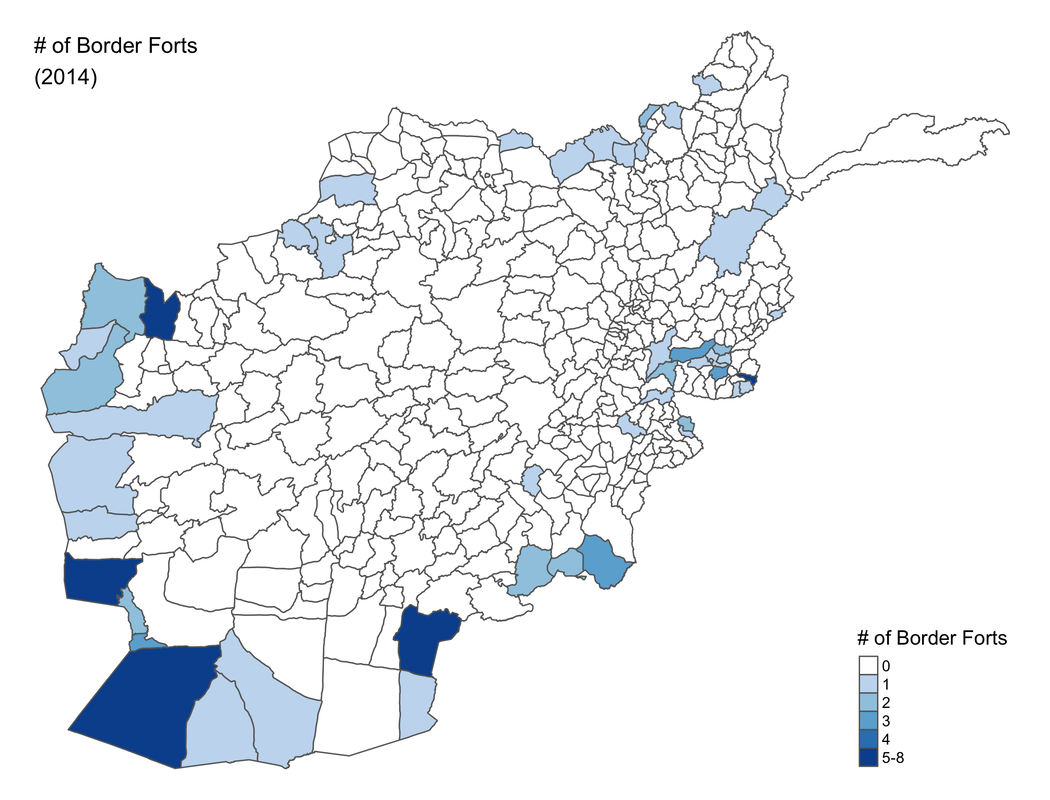
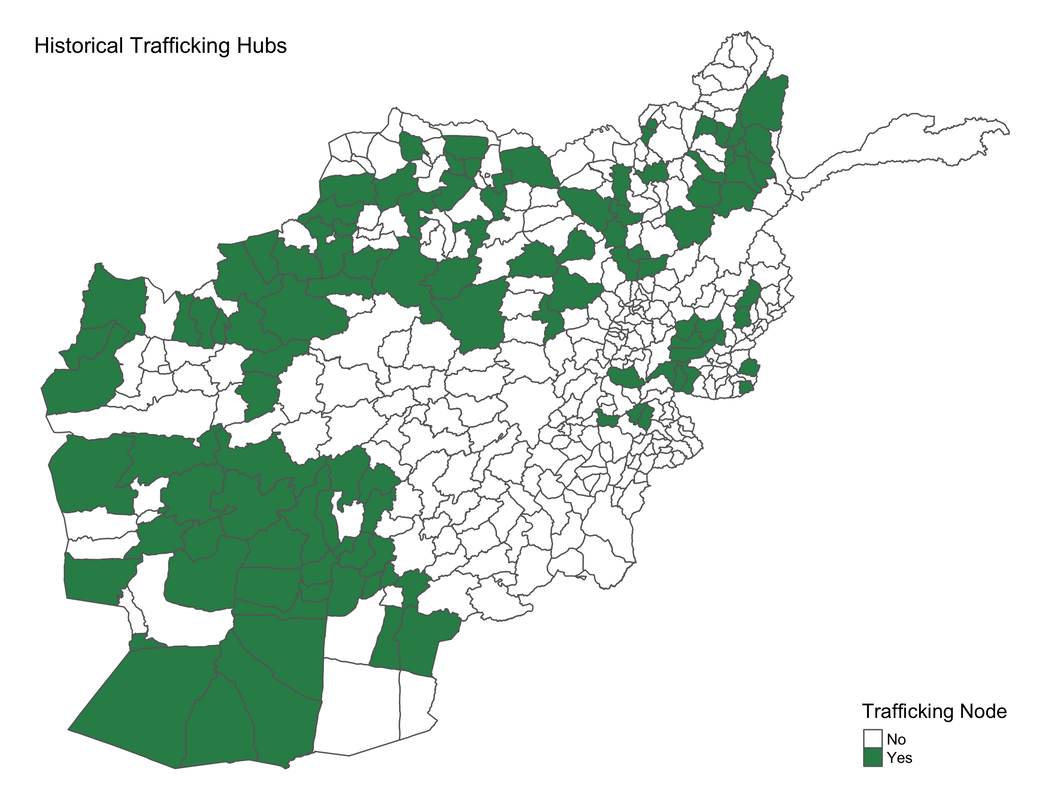
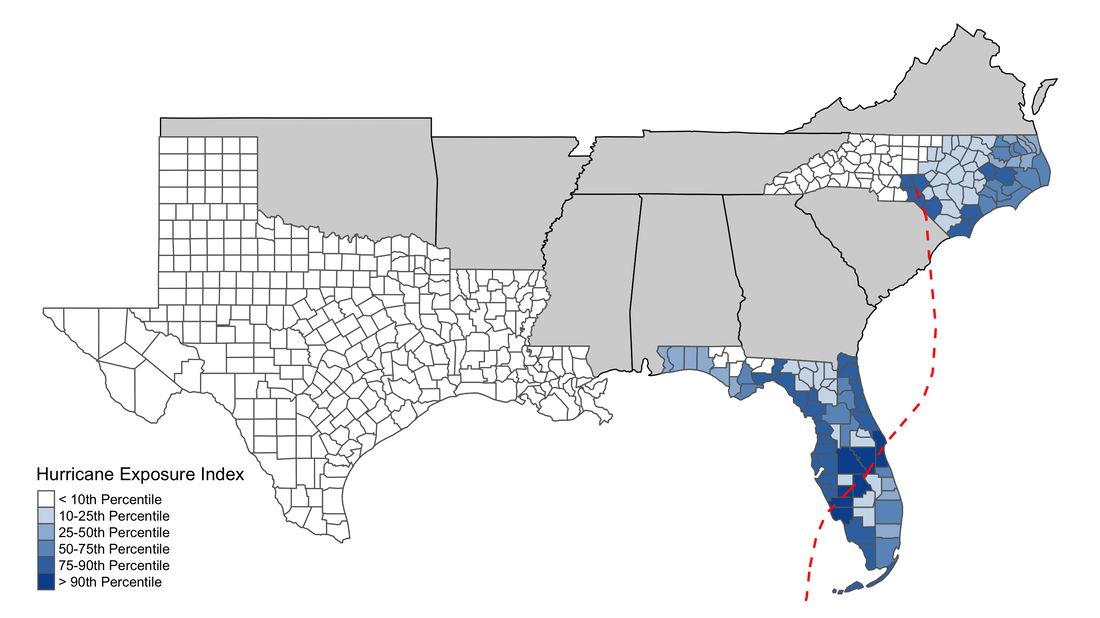
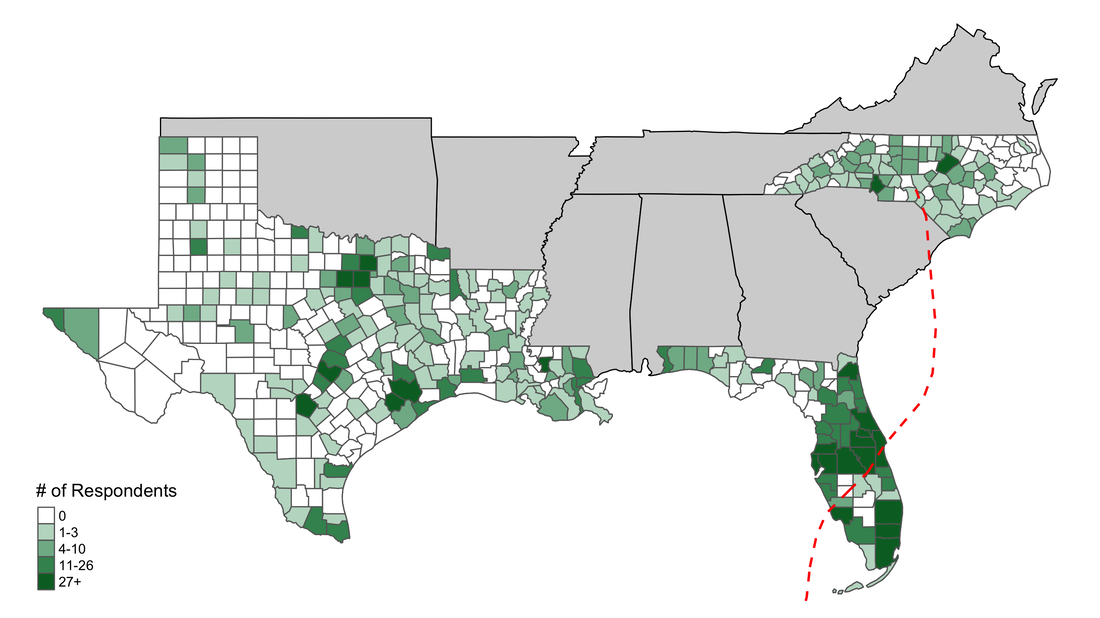
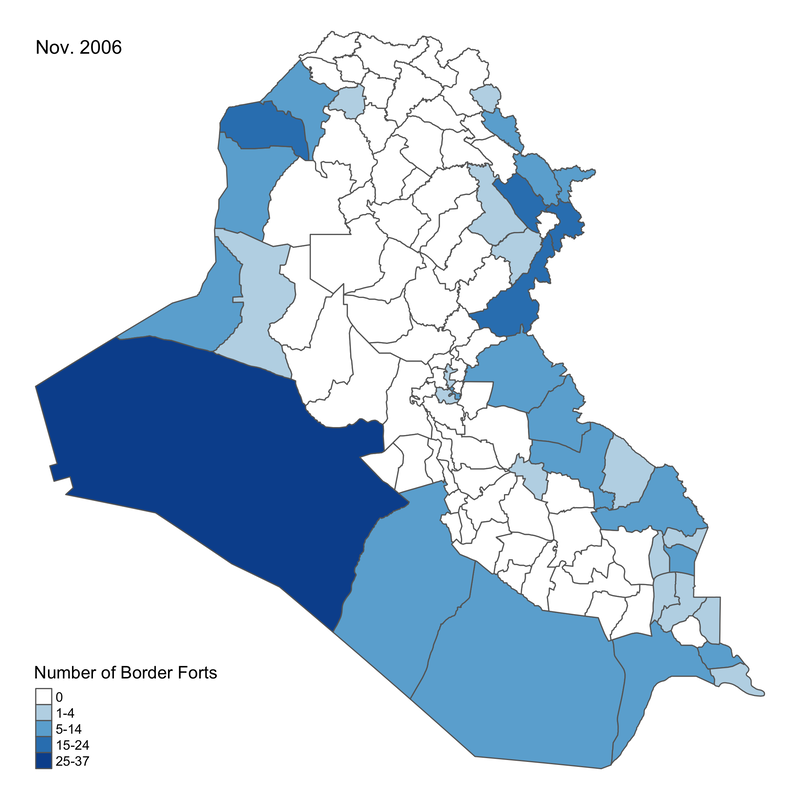
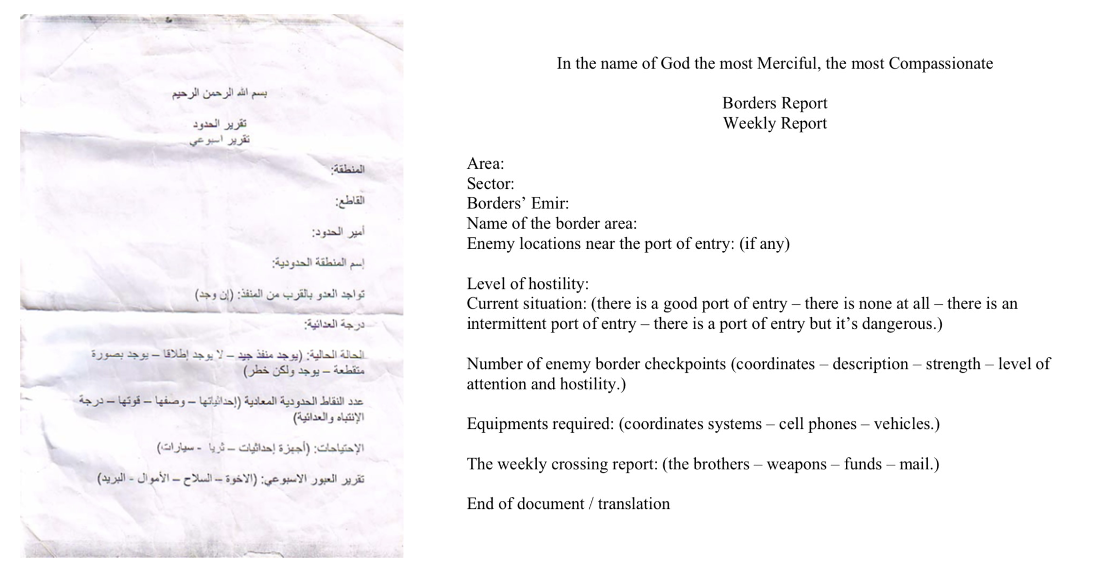
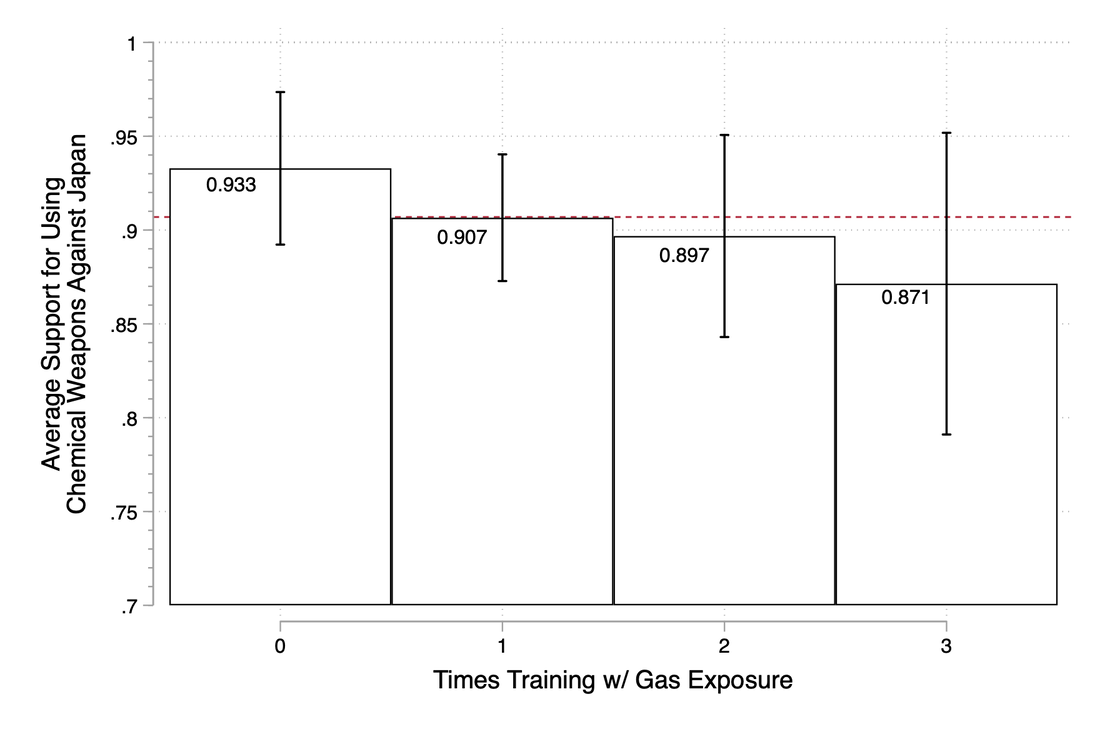
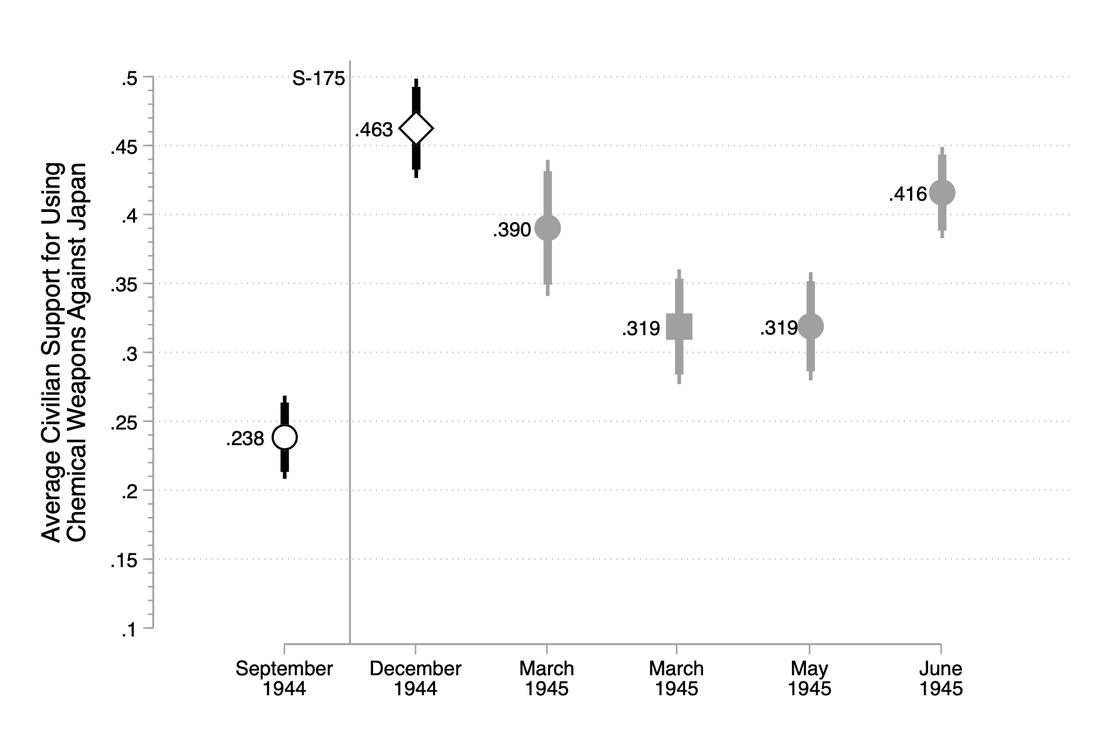
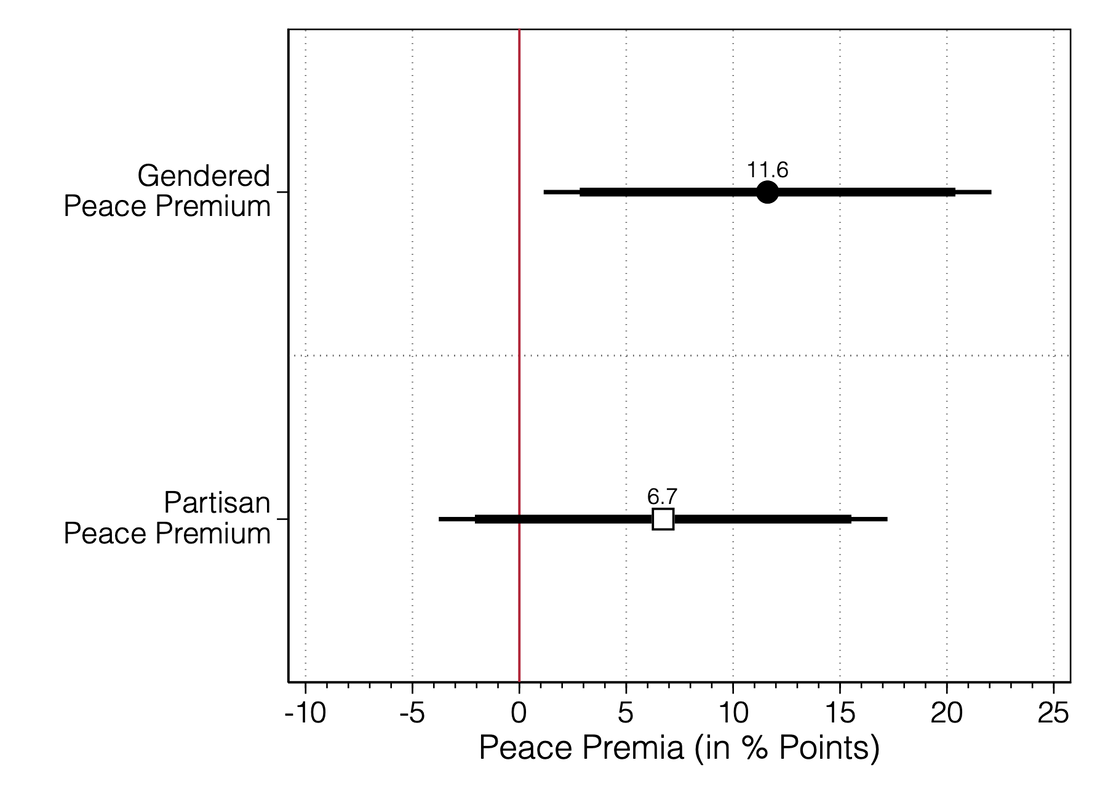
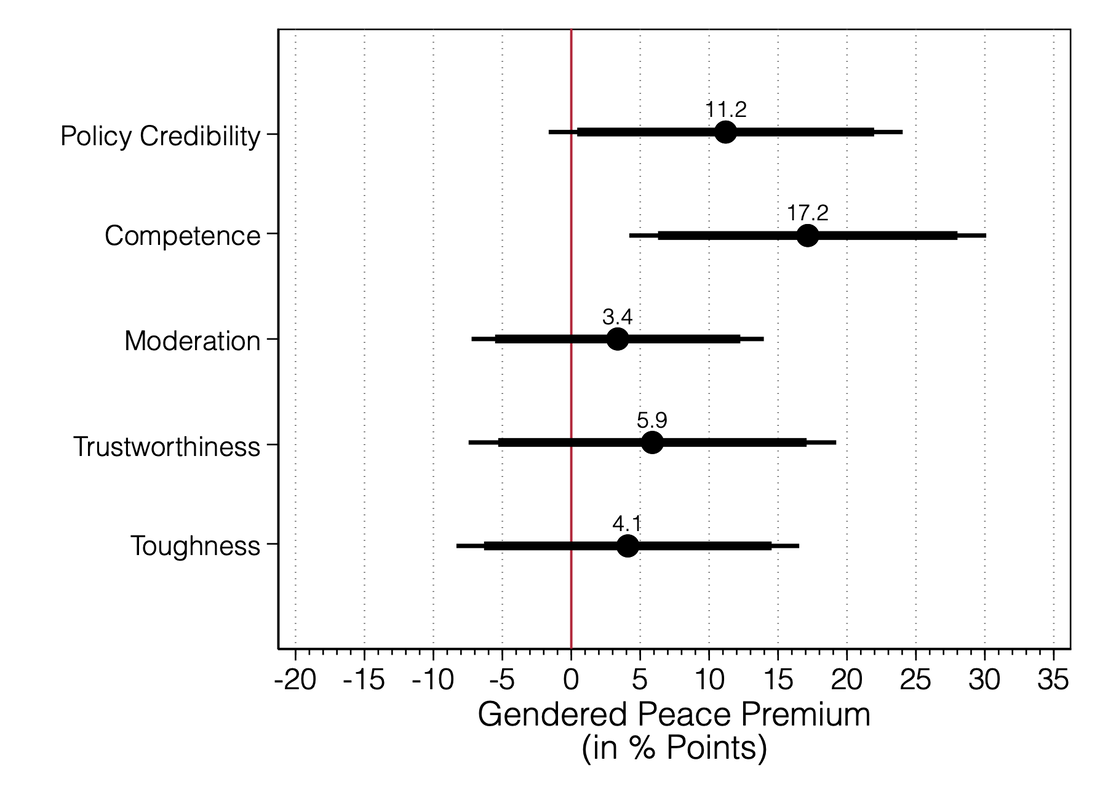
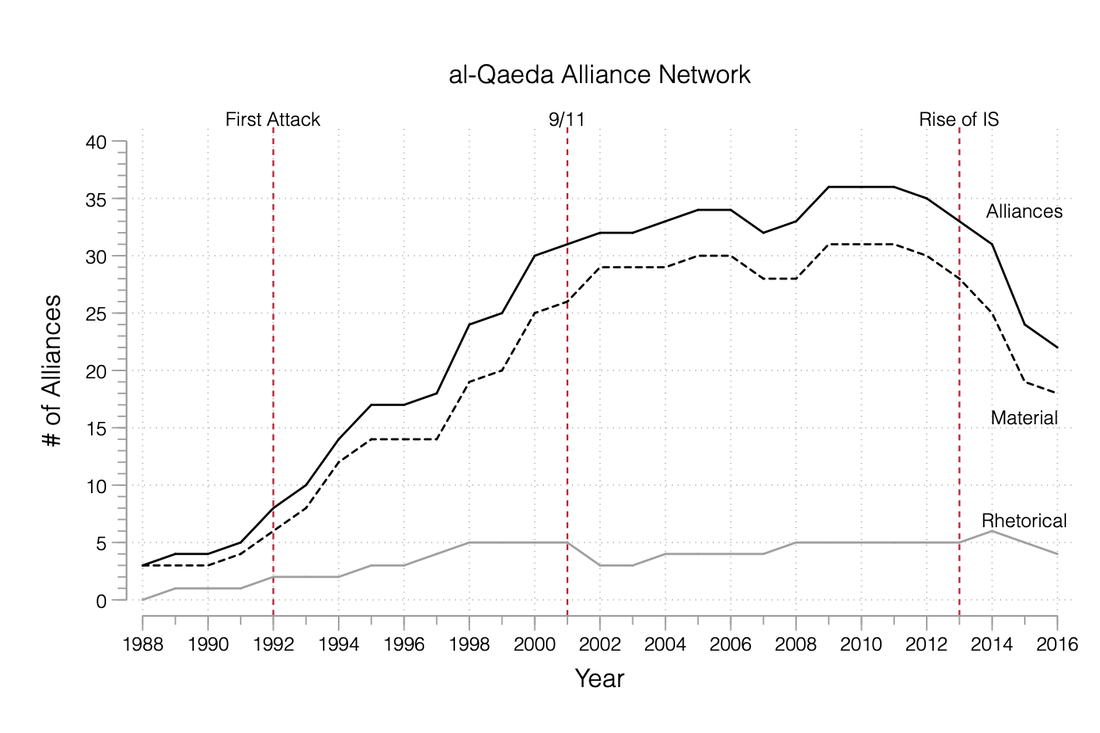
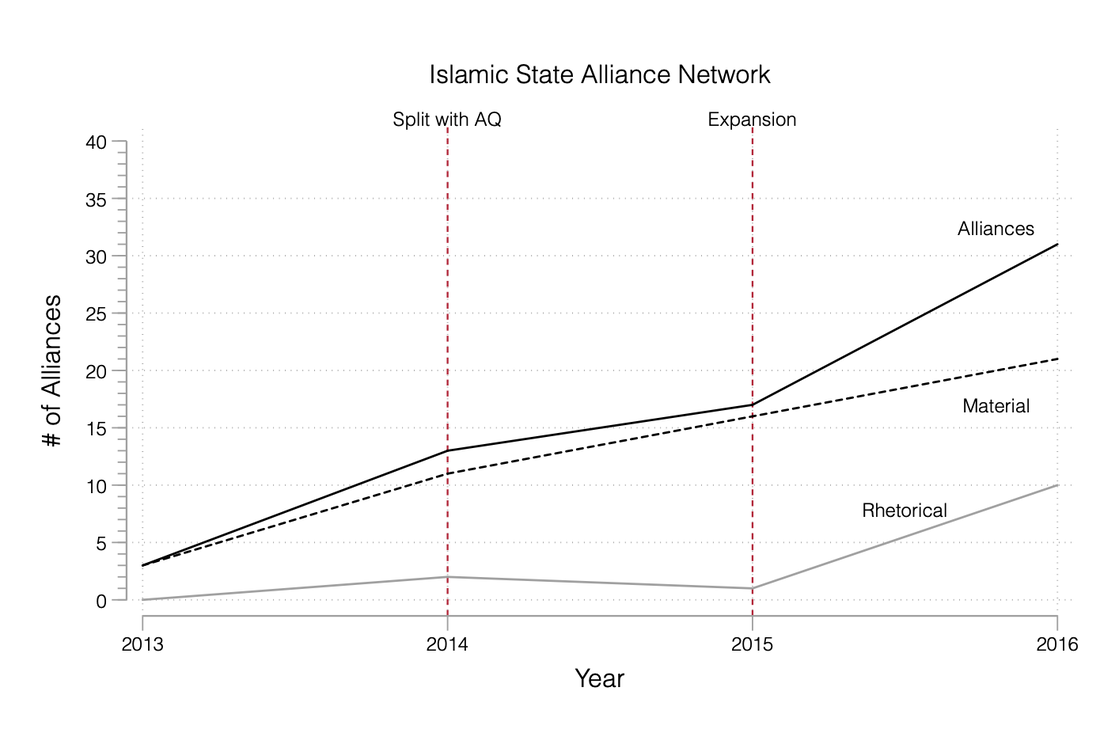
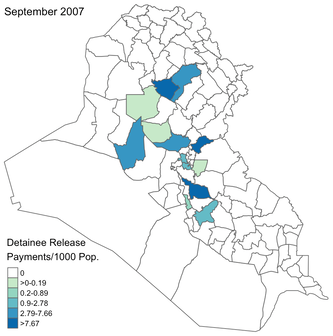
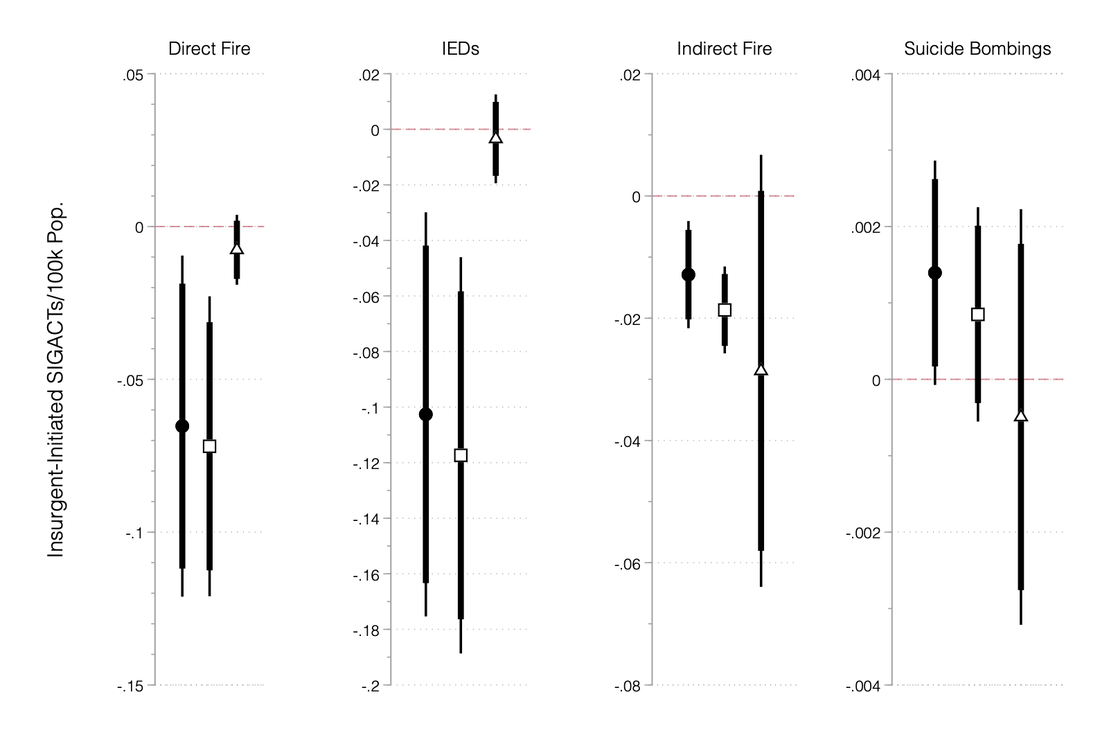
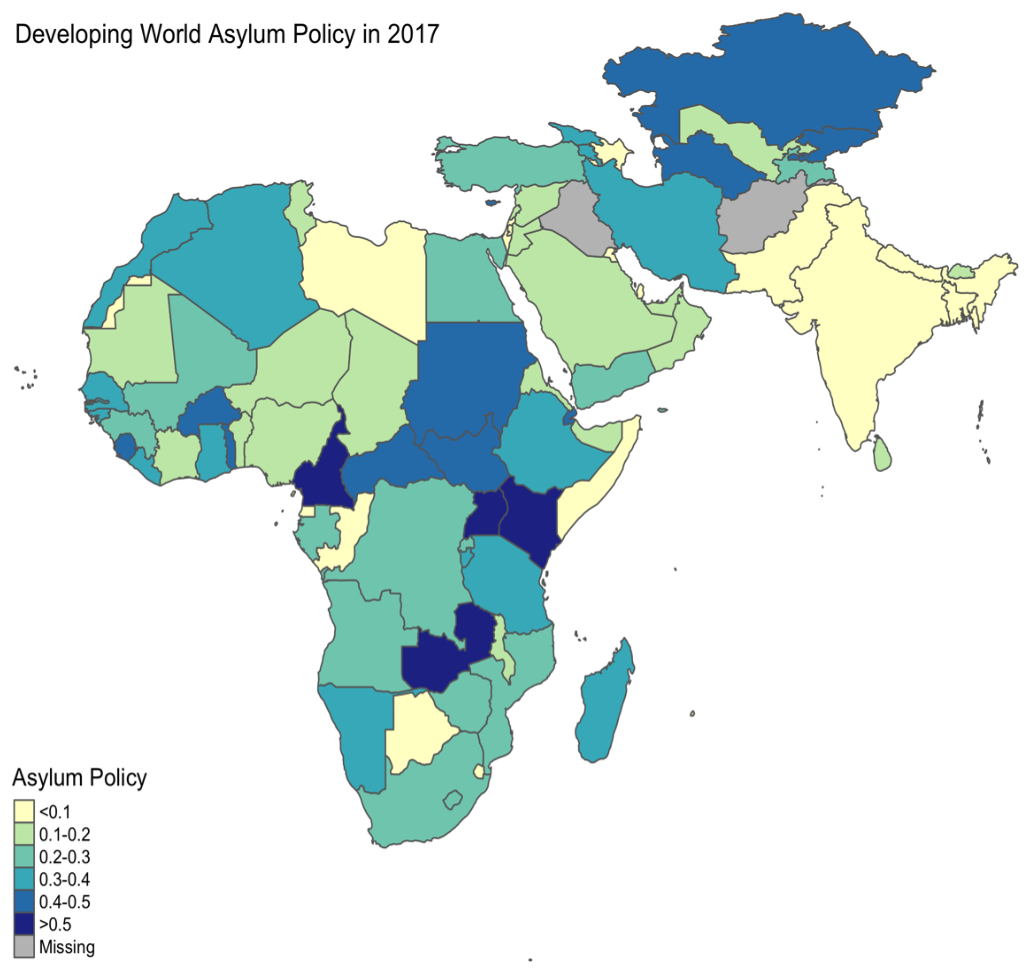
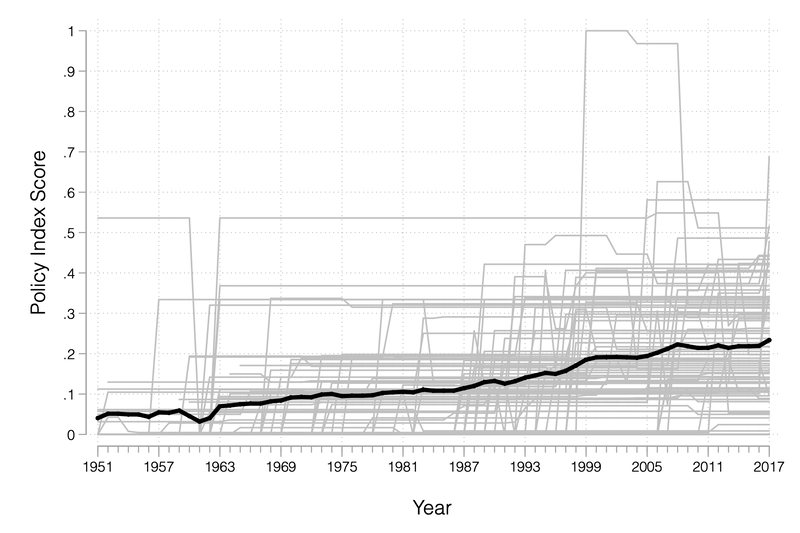
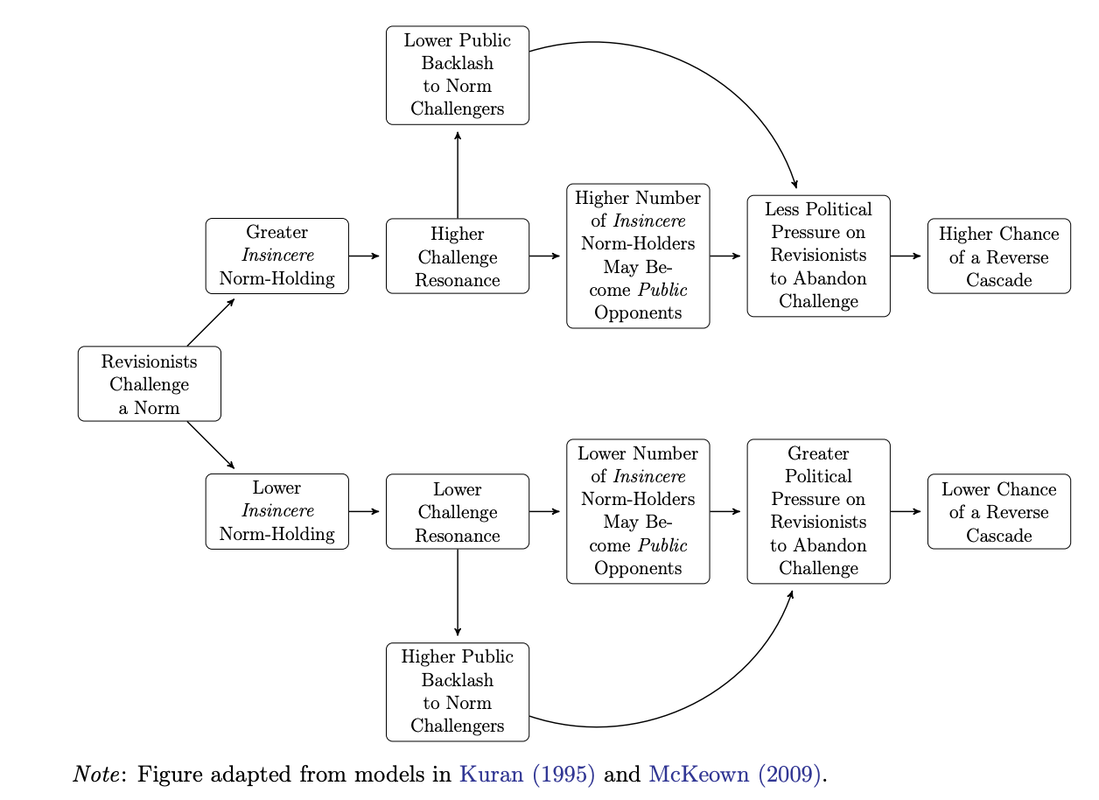
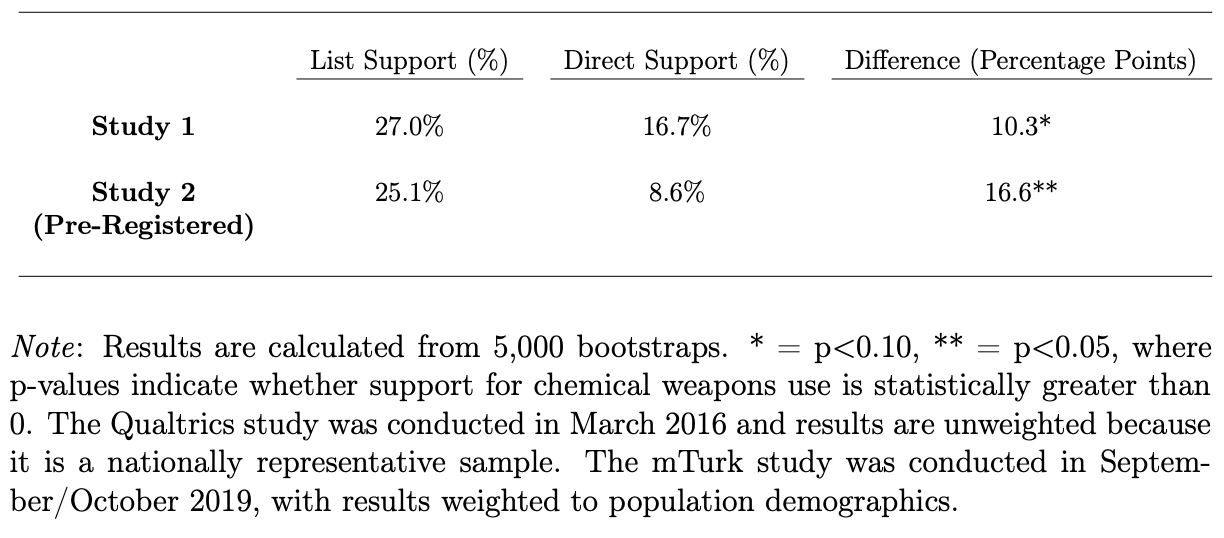
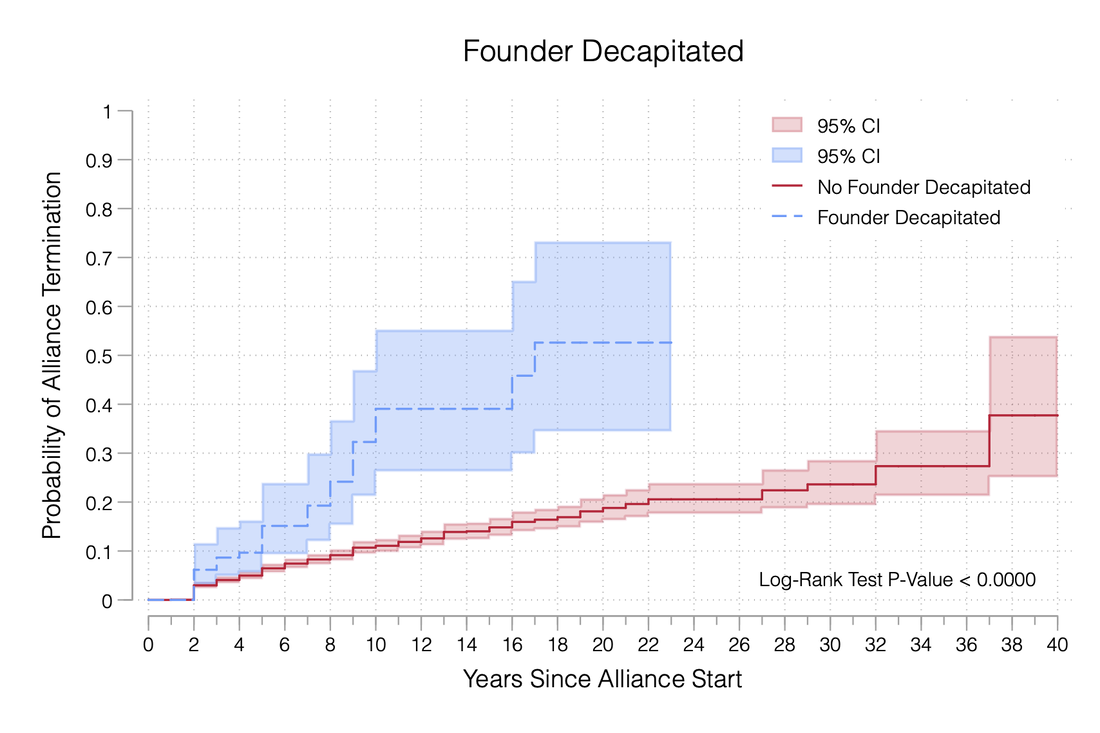
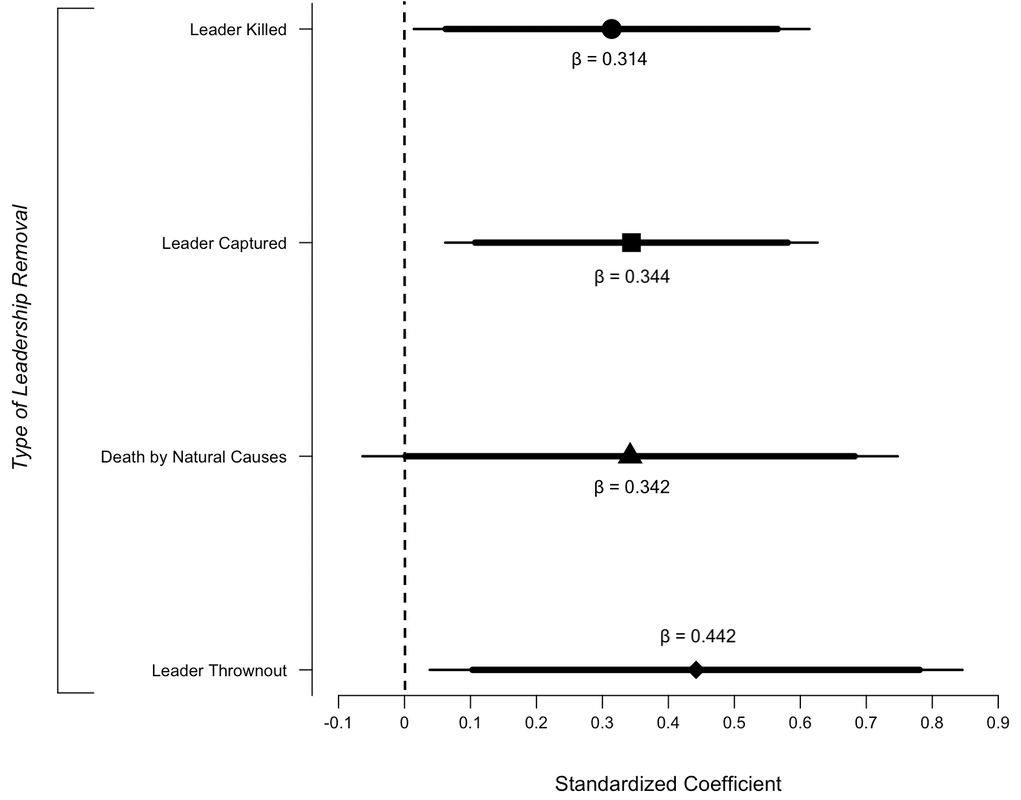
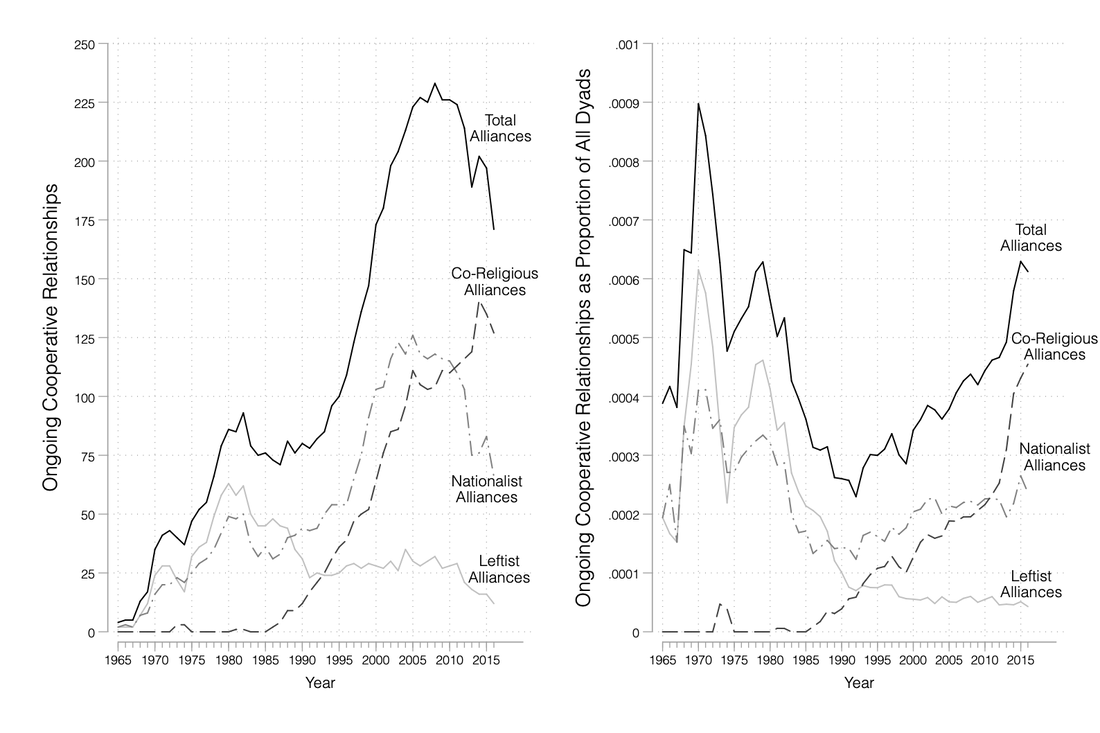
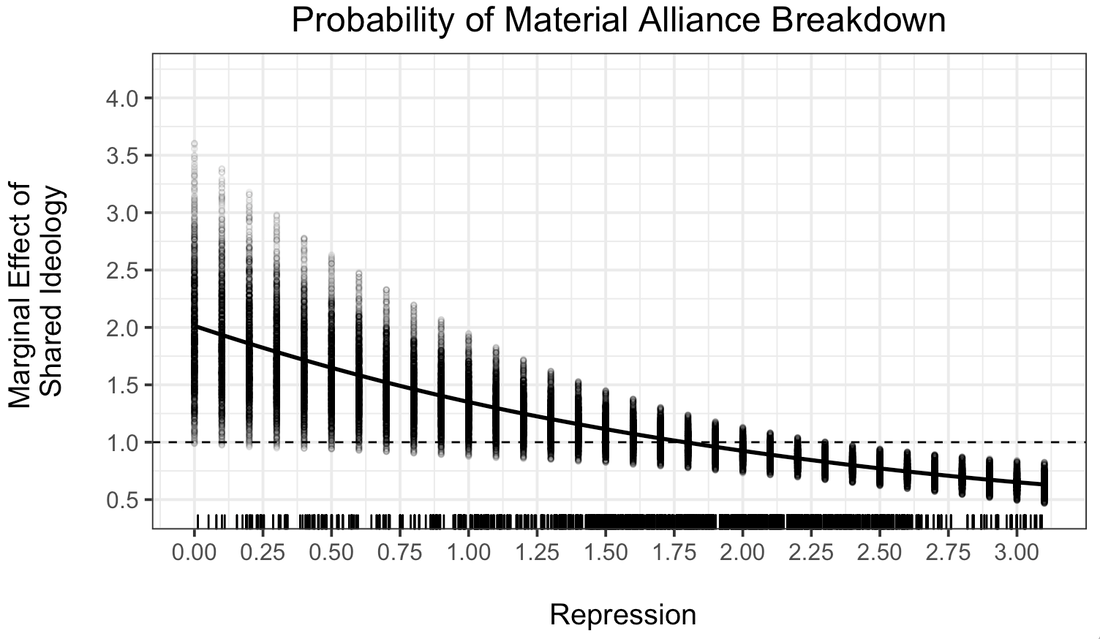
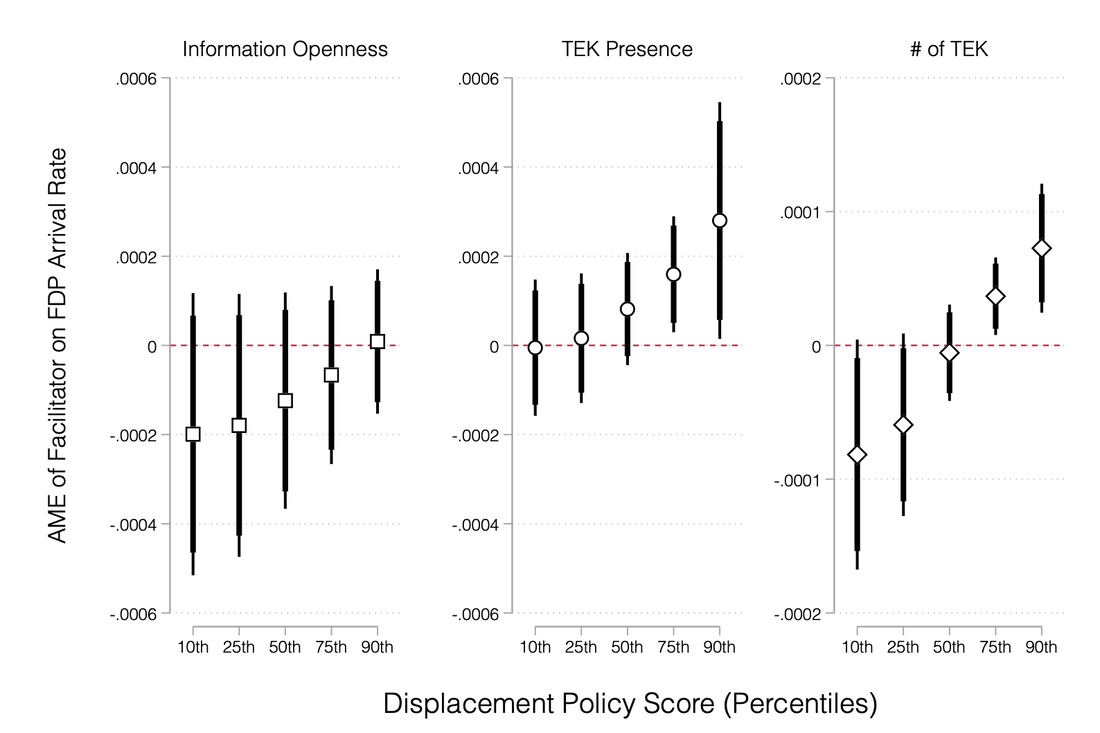
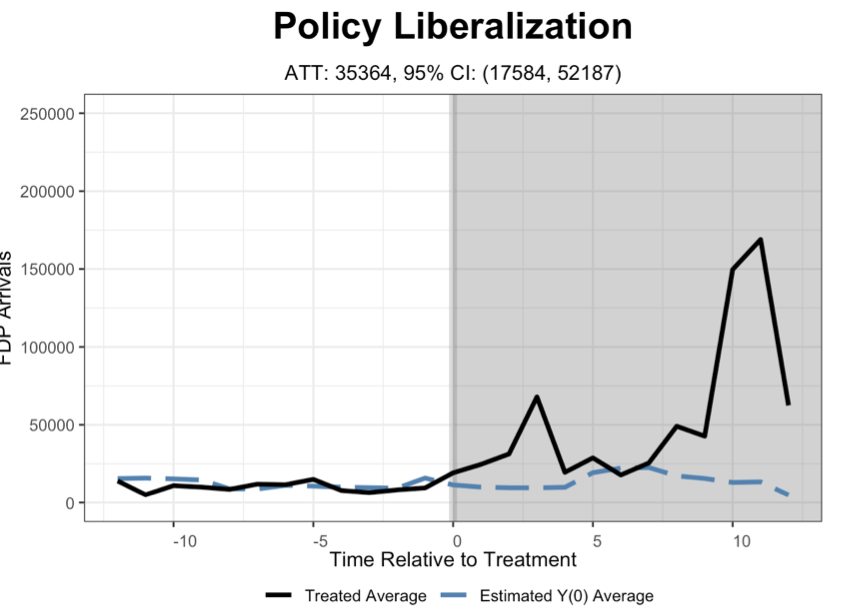
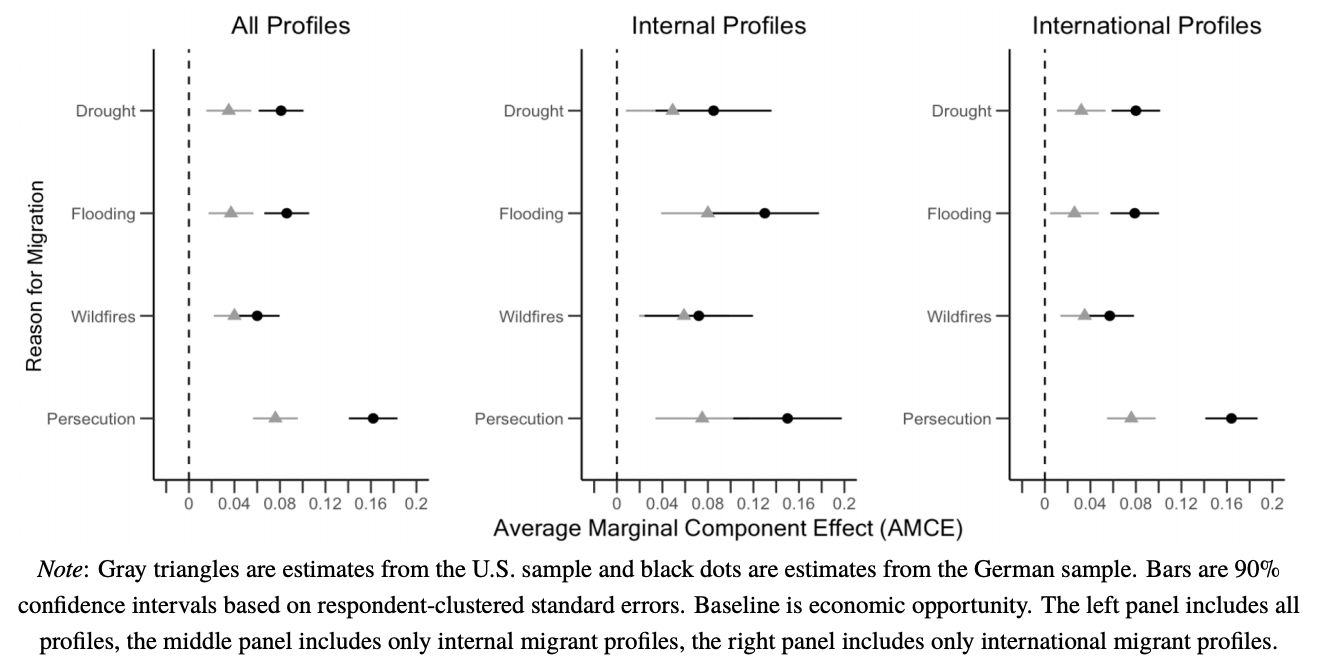
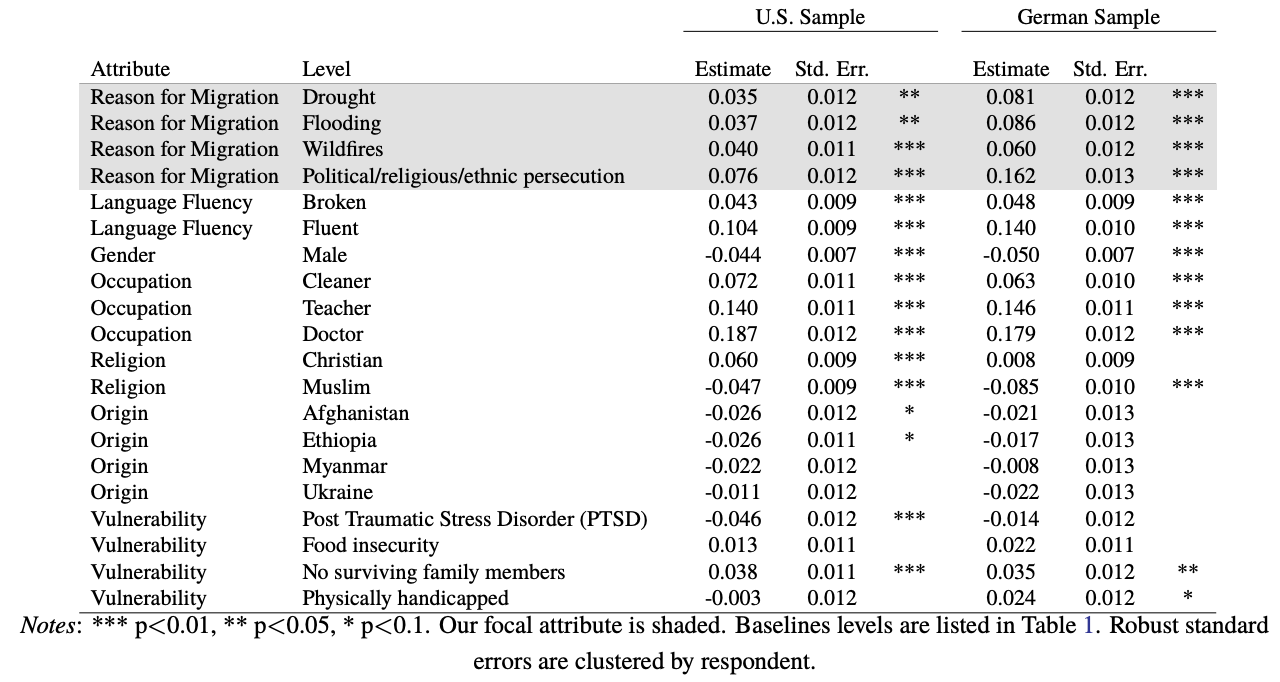
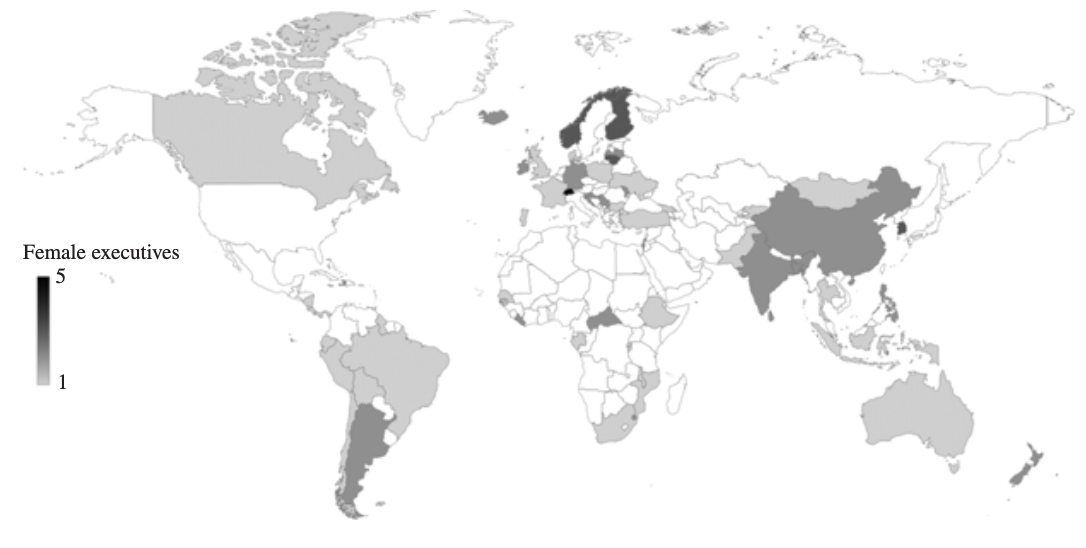
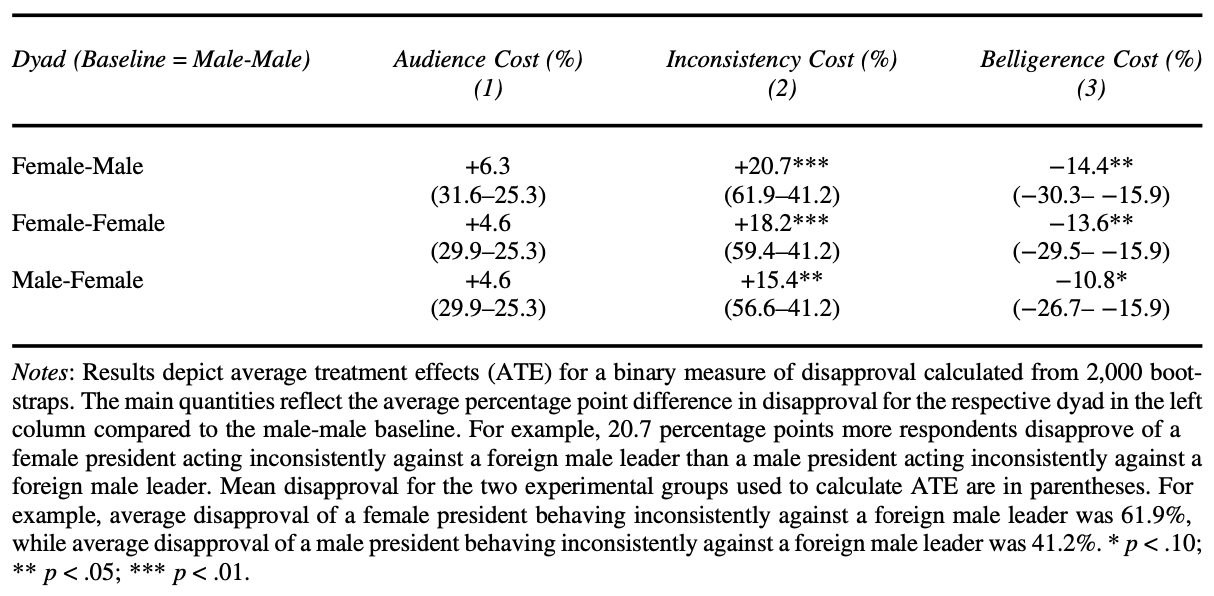
 https://orcid.org/0000-0001-5774-5976
https://orcid.org/0000-0001-5774-5976